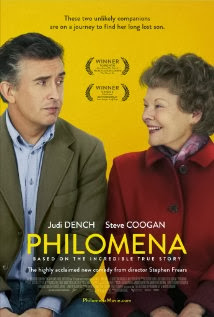
I've always collected errors in diction, things people mis-hear, like "windshield factor" and "the next store neighbors." Years ago, one of my students wrote an essay in which she described the world as being harsh and cruel, "a doggy-dog world." I've since come to think she may have been more astute and accurate than those who describe it in the usual way. My Stories - Mobridge Memories -
About Me
Translate
Most of what I've written has been published as e-books and is available at Amazon. Match Play is a golf/suspense novel. Dust of Autumn is a bloody one set in upstate New York. Prairie View is set in South Dakota, with a final scene atop Rattlesnake Butte. Life in the Arbor is a children's book about Rollie Rabbit and his friends (on about a fourth grade level). The Black Widow involves an elaborate extortion scheme. Happy Valley is set in a retirement community. Doggy-Dog World is my memoir. And ES3 is a description of my method for examining English sentence structure.
In case anyone is interested in any of my past posts, an archive list can be found at the bottom of this page. I'd appreciate any feedback you may have by sending me an e-mail note--jertrav33@aol.com. Thanks for your interest.
Tuesday, December 3
Philomena
We just saw the Judi Dench film called Philomena and were touched by her performance as well as by this story of a woman’s search for a son she’d lost to the Catholic nuns in Ireland fifty years before. The story was touching, maybe a bit tear-jerky, but I don’t mind having a few of my tears jerked or my heart strings plucked. Every now and then, we all need a good cry even if it isn’t for our own problems or heartaches. Dame Judi didn’t do anything phenomenal; she just showed us an older woman who lived a simple life and maintained her faith in God and the Catholic Church despite what they had done to her in her youth. I didn’t realize before seeing this movie that it touched on the reprehensible Magdalene Houses in Ireland in the first half of last century. One of the most vivid film memories I have is of The Magdalene Sisters, a black and white indictment of these Irish places that imprisoned young girls who had “sinned” in the eyes of their parents and the Catholic nuns who ran these houses. The women were kept under lock and key and made to work at chores like doing laundry for townspeople, and they were there for their lifetimes unless they could somehow find someone to bail them out for up to five hundred pounds, usually a sum that was impossible to come by. Philomena Lee had to stay there for four years, able to see her son every now and then as he grew up under the care of the nuns. Aaron, her son, when he was four, was sold to an American couple for a thousand pounds. Now, forty-six years later, she wants to find him, to see how his life has been, maybe to ask him for his forgiveness for having allowed him to be taken from her. She enlists the aid of a journalist, and together, they find him and learn the story of his life. The film may soon be forgotten, but my images of Judi Dench will be with me forever, just as those scenes from The Magdalene Sisters are with me forever. The filmmakers chose to do a lot of full face shots of her as she traveled with Martin in their search. There she was, old face with lines and crags, eyes rheumy, but I could still see the young Judi Dench beneath the mask, the beauty she must have been in her youth. I’ll be pulling for her when the Oscars are announced.
Subscribe to:
Post Comments (Atom)


No comments:
Post a Comment